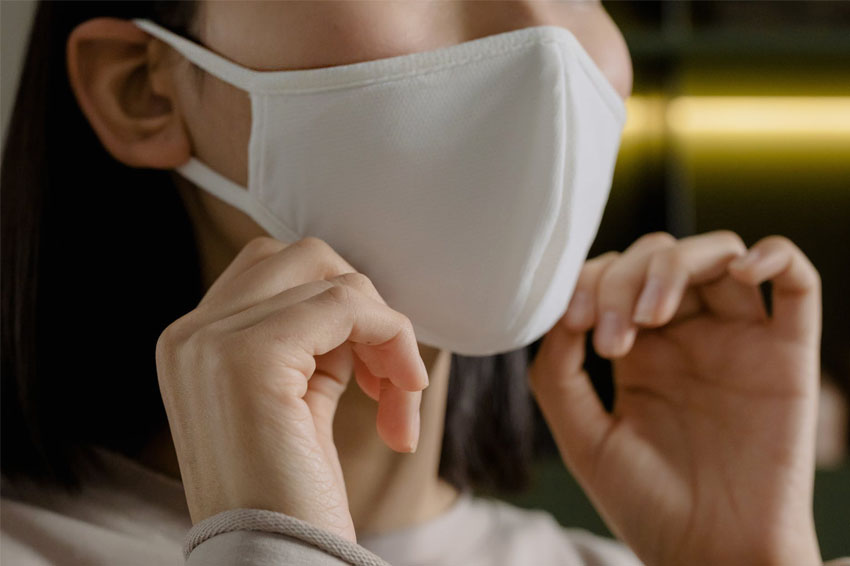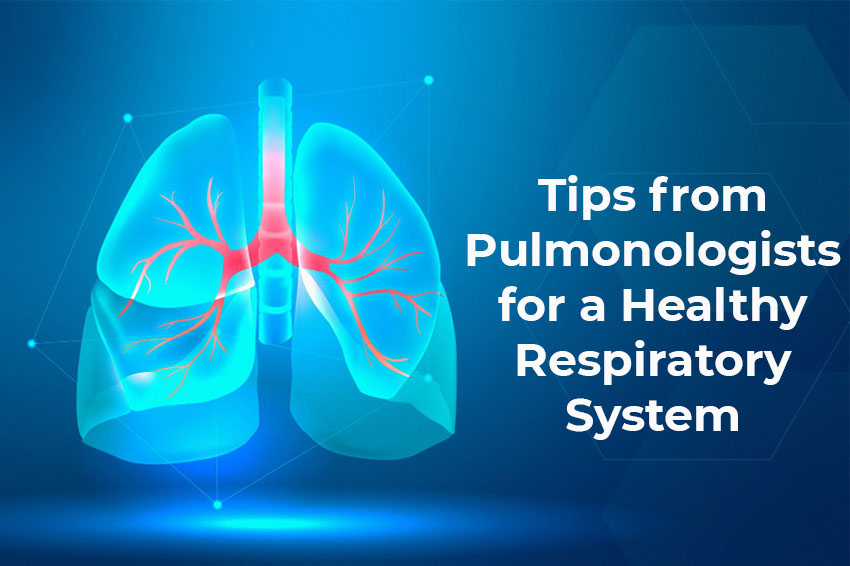Pulmonologists treat various Chronic Obstructive Pulmonary Diseases (COPD) diseases such as bronchitis, asthma, pneumonia, and mesothelioma. They perform thorough check-ups to examine the patients’ breathing and determine the causes of disorders.
For this purpose, they may often refer their patients for specific lab tests or image exams, prescribe medications to treat the symptoms and perform surgeries whenever needed.
Some pulmonologists offer advice on preventing the spread of serious respiratory system diseases. They offer guidance on how to change your lifestyle, so there’s little to no risk of said illnesses.
If you’re living with a chronic condition, they will provide you with proper self-care guidelines along with management plans to take care of yourself during emergencies.
Since pulmonary issues are related to breathing which is necessary to stay alive, it’s critical to listen to their concerns. In this blog post, you’ll discover some important tips from pulmonologists to ensure a healthy respiratory system.
Pulmonologists’ Tips for a Healthy Respiratory System:
Wearing Preventive Gear When Exposed to Toxic Environments
Most pulmonologists advise their patients is to avoid prolonged exposure to toxic environments. Various work environments such as mining, packaging (involved with asbestos) that are in enclosed workspaces trigger COPD.
Asbestos fibers lodge in between the lung layer called the pleura and the rib cage, and as a result, the patient might experience malignant pleural mesothelioma.
This dangerous form of cancer takes years to develop but speeds up once it crosses stage 3. Additionally, patients suffering from COPD are advised to wear safety gear when working in factories or industries with high fumes.
At this age, the risk of respiratory diseases increases and can even be fatal.
Quit Smoking

human hand holding cigarette
This one is specific for smokers. Pulmonologists can’t emphasize enough how tobacco smoking is among the worst habits that decrease immunity and the life of the respiratory system.
Apart from causing lung cancer, smoking is among the top causes of major respiratory disorders and heart attacks.
Long-term smoking destroys the lung airways and the alveoli. As a result, smokers often face trouble while breathing.
In some cases, tobacco leads to the loss of integral organs like the heart, lungs, mouth, blood vessels, and digestive parts. Moreover, smokers might even experience the worst type of sleep apnea.
Wear A Mask

woman wearing a mask
It’s necessary to wear masks, especially if you’re prone to respiratory diseases. If you live in a polluted area with lots of smoke or smog, it might trigger allergies.
Similarly, if you work in toxic places with lots of chemicals, it could endanger the health of your lungs.
To avoid such complications, wearing surgical masks or the standard N-95 provides significant preventive care against microparticles that might enter the airways.
Screen for Genetic Conditions
Very rarely, a pulmonologist may also want you to be aware of any hereditary genetic respiratory conditions. These conditions vary from asthma, bronchitis, cystic fibrosis, etc. They are passed on to generations through genes.
Awareness about these diseases can go a long way in improving your well-being. You will take better care of yourself and avoid triggers that might worsen the symptoms.
Additionally, it’ll help you take more control over your condition through adjustments in your lifestyle, such as diet.
Avoid Prolonged Dust Exposure
Pulmonologists also warn against being in environments with loads of dust. It can potentially harm the lungs’ health and lead to severe respiratory diseases.
Occupational environments with exposure to dust are one of the most common reasons for irritation in the lungs, cough, and sneezing.
If you work in the manufacturing sector, there may be high amounts of wood dust around you. Similarly, workers in coal mines are prone to black lung disease because of the severe dust inside.
It’s important to wear proper gear such as protective suits, helmets, masks, etc., to avoid long-term exposure to dust.
Pollen Allergies During the Spring Season
The air is dense with pollen during the spring season. Gardens and parks are filled with pollens which are known aggressors for asthma patients.
Climate change and rising air pollution are important factors that aggravate pollination. If you want to avoid severe asthma attacks during this season, make sure you steer clear from environments with flowers.
Otherwise, always don a mask that properly covers your nose and mouth and prevents pollens from getting inside your system.
Take Medicines Timely
Pulmonologists also want to warn people to take medicines on time and avoid missing out on doses. Even if you feel better, you must continue your medicines to ensure your immunity stays high.
Otherwise, you might aggravate your disease and create further complications. Never stop any medication without first discussing the condition with your doctor.
Suppose you tend to forget timely doses, set alarms or reminders on your phone.
Exercises Regularly

man doing exercise
Even if you’re suffering from an acute respiratory condition, it’s important to exercise regularly to keep your body healthy.
Workouts increase lung capacity and improve your ability to breathe. They help expand your chest, improve blood flow to the lungs, and deliver more oxygen to your vital organs.
Additionally, the tissues around the chest grow stronger when you perform proper exercises every day. You might want to pace yourself, though, especially if you have shortness of breath.
Try easy exercises, simple yoga, or cycling to stay active. Pulmonologists also recommend breathing exercises.
Final Thoughts
Taking care of your lungs isn’t as difficult as it might seem. Your goal should be to avoid the risk factors that might put your respiratory system at risk of acute and chronic illnesses.
If you reside in polluted regions, you should pay extra attention to gear up according to your environment. It’s necessary to always have the best protective equipment at hand to prevent harmful and toxic particles from reaching inside your system.
You should also find the most pulmonologist for yearly check-ups for early detection and diagnosis. We hope these tips will prove useful to keep you and your loved ones safe from serious respiratory complications.
If you like this article and wish to add your two cents to this, feel free to add them in the comments section below.
Image Credit: Rawpixel, Jcomp, Cottonbro
This article is published by our independent team of health and wellness pundits that publish original and informative content to empower readers to take charge of their health and embark on a physically, mentally, and emotionally balanced lifestyle.





































